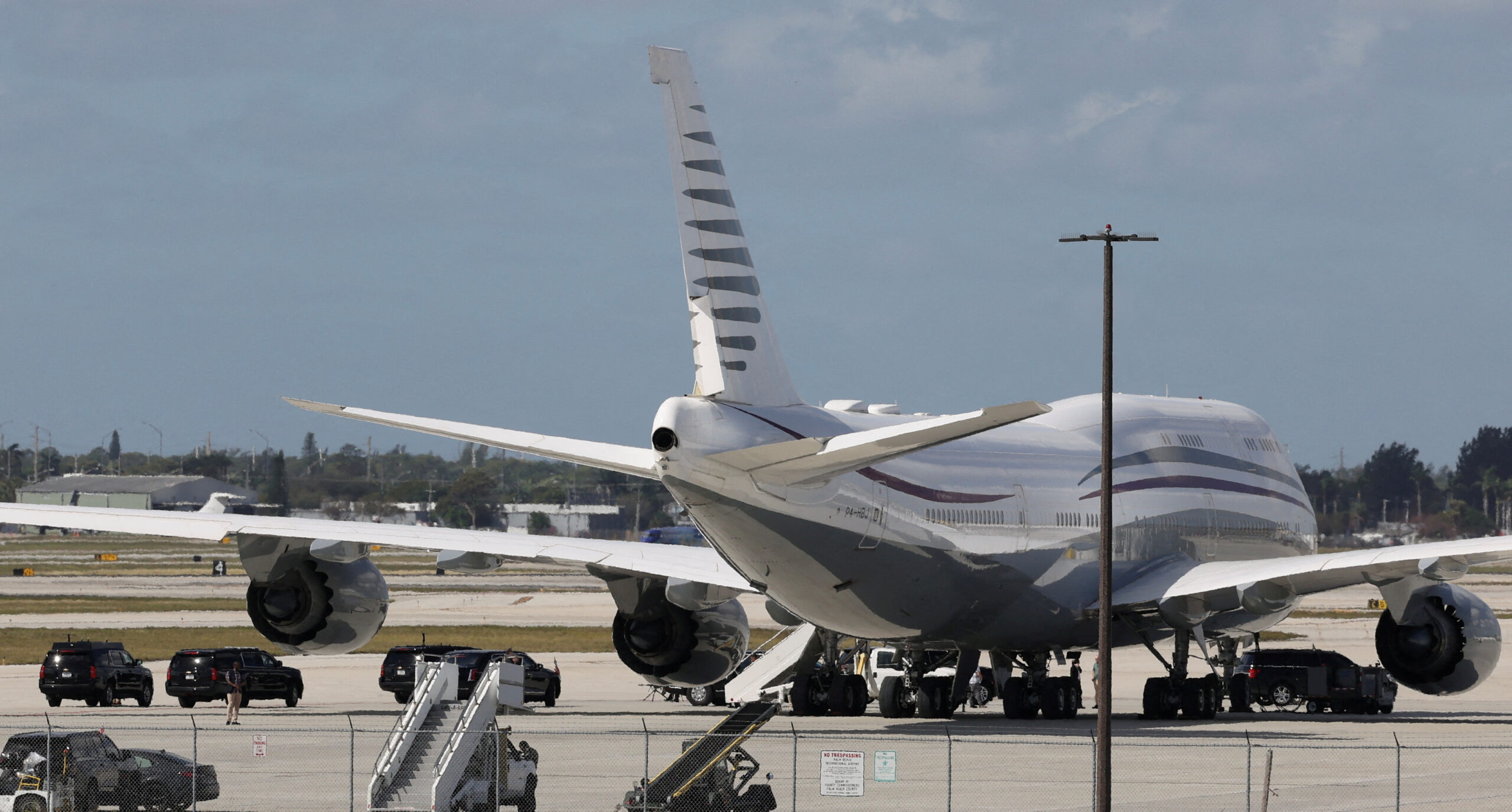The geopolitical playing field saw an unusually high number of developments this past week, with the Trump administration navigating high-stakes diplomacy, securing the release of an American hostage, fending off suspect “gifts” from questionable regimes, and quietly advancing several foreign policy deals in troubled regions.
On Monday, the last remaining U.S. hostage held by Hamas, Eden Alexander, was released—a significant moment in the ongoing conflict in Gaza and a rare victory in a region steeped in instability. While the administration celebrated the successful negotiation, attention quickly turned to a more bizarre and controversial matter: a report that Qatar offered President Trump a custom-built Boeing 747-8 jetliner to serve as Air Force One for the remainder of his term.
The plane, reportedly intended to be transferred to the Trump Presidential Library Foundation at the end of his presidency, immediately raised concerns about propriety and national security. Trump critics and allies alike questioned the optics of accepting a lavish gift from Qatar—a country long accused of enabling Hamas and influencing Western institutions through its financial reach.
“Qatar is not our best friend,” said Steven Bucci, former Army Special Forces officer and Pentagon official, in an interview on Chicago’s Morning Answer. “They’re a radical Shia regime that plays both sides—helping facilitate hostage releases while simultaneously funding Hamas and pushing propaganda through American universities.”
While the Department of Justice is said to have cleared the legality of the gift under the Constitution’s emoluments clause, Bucci emphasized the security and perception risks. “That plane can’t be cleared for presidential use,” he said. “The electronics alone would make it virtually impossible to ensure it’s safe from surveillance or sabotage. And then there’s the unseemliness of the whole idea.”
In a separate story that gained less attention, the Trump administration reportedly negotiated the safe exit of a prominent Venezuelan dissident from Nicolás Maduro’s regime. While migrants from Venezuela continue to pour into the U.S.—many of them convicted criminals—the administration drew a line by assisting only those verified as persecuted political opponents of the dictatorship.
“That’s what our diplomacy should be used for,” said Bucci. “There’s a difference between helping legitimate political dissidents and giving safe haven to cartel-connected criminals.”
The Middle East was also buzzing with activity. Trump is scheduled to attend an investment summit in Saudi Arabia this week. Meanwhile, Syria’s new strongman, Al-Sharah—an al-Qaeda-linked figure who recently assumed control of the war-torn country—proposed peace with Israel, American investment, and even a Trump Tower in Damascus.
Bucci was sharply skeptical. “He shaved his beard and put on a suit, but he’s still a terrorist,” he said. “We should use the opportunity to pressure him to change, not to legitimize his regime.”
Another complication arose with a ceasefire deal negotiated by the U.S. with Yemen’s Houthi rebels. The Houthis agreed to stop attacking U.S. ships in exchange for a pause in American strikes. But that deal left out key allies, including Israel, Britain, and the UAE, whose vessels remain vulnerable. Over the weekend, Israel issued an ultimatum to the Houthis, indicating military retaliation may be imminent.
“This is an unforced error,” Bucci said of the deal. “We need to coordinate with our allies. Sending mixed signals, especially to Israel, emboldens Iran’s proxies and undermines our credibility.”
As if the Middle East wasn’t complicated enough, there are reports that Russia and Ukraine are considering preliminary peace talks in Turkey. Ukrainian President Volodymyr Zelensky says he’s willing to attend but insists on a ceasefire first—a precondition Russian President Vladimir Putin may not be inclined to meet.
“I wouldn’t trust Putin for a second,” said Bucci. “He’s a spy, a former KGB wet-works guy. He’ll lie, stall, and then use any excuse to shift blame. If Zelensky doesn’t have firm commitments before sitting down, he risks being played.”
While much of the world remains locked in conflict and complexity, the administration did record another win this week with the release of a U.S. citizen from Hamas and a dissident from Venezuela. Whether those breakthroughs will lead to broader change remains to be seen.
In a lighter moment, Bucci quipped that even if Russia proposed Steven Seagal—a known Putin ally and Russian citizen—as a peace envoy, it wouldn’t improve the situation. “He hasn’t aged well,” he joked. “And I’m not sure his diplomatic skills are any better than his recent films.”
With an increasingly volatile global stage, the administration faces mounting pressure to separate real breakthroughs from political theater—and avoid Trojan Horse deals, whether they come in the form of ceasefires or jumbo jets.





